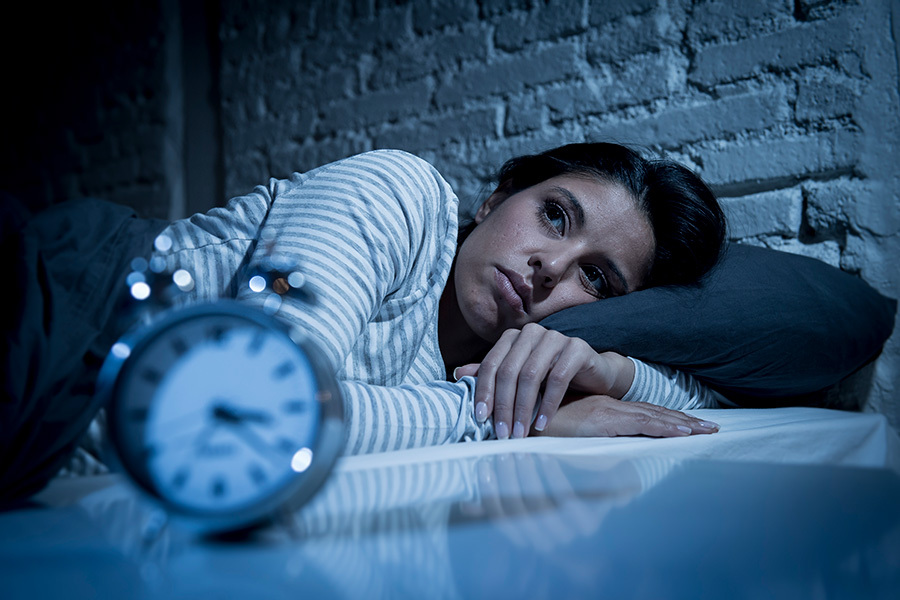
Insomnia is a prevalent condition that affects millions of people worldwide. Characterized by difficulty falling asleep, staying asleep, or waking up too early, insomnia can lead to a host of problems, including fatigue, mood disturbances, and impaired cognitive function. While many resort to over-the-counter or prescription medications for relief, these options often come with side effects and potential dependency. Fortunately, there are numerous natural remedies that can help promote better sleep without the risks associated with pharmaceuticals. This article explores effective natural strategies for insomnia relief.
Understanding Insomnia
Before delving into remedies, it’s essential to understand what insomnia is and its underlying causes. Insomnia can be classified into two main types: primary and secondary. Primary insomnia occurs independently of any underlying medical condition, while secondary insomnia is a symptom of another issue, such as stress, anxiety, depression, or chronic pain.
The causes of insomnia can vary significantly and include lifestyle factors, environmental influences, and psychological conditions. Common contributors to insomnia include:
Stress and Anxiety: Worrying about work, health, or personal relationships can keep the mind active at night.
Poor Sleep Habits: Irregular sleep schedules, excessive screen time before bed, and consumption of caffeine or alcohol can disrupt sleep patterns.
Medical Conditions: Conditions like asthma, arthritis, or GERD can hinder restful sleep.
Natural Remedies for Insomnia Relief
1. Herbal Supplements
Several herbs have been studied for their sleep-promoting properties:
Valerian Root: This herb has been used for centuries to alleviate insomnia. Valerian is believed to enhance the effects of GABA, a neurotransmitter that promotes relaxation. Some studies suggest that valerian may reduce the time it takes to fall asleep and improve sleep quality.
Chamomile: Often consumed as a tea, chamomile is known for its calming effects. The compound apigenin found in chamomile binds to specific receptors in the brain that may decrease anxiety and initiate sleep.
Lavender: The scent of lavender is often used in aromatherapy to induce relaxation. Research indicates that inhaling lavender oil before bedtime can significantly improve sleep quality and increase the amount of time spent in deep sleep.
2. Mindfulness and Relaxation Techniques
Incorporating mindfulness practices into your nightly routine can significantly improve sleep quality:
Meditation: Practicing meditation before bed can help calm an overactive mind. Guided meditations focusing on relaxation or sleep-specific themes are particularly beneficial.
Deep Breathing Exercises: Engaging in deep breathing can reduce stress and promote relaxation. Techniques like the 4-7-8 method—inhale for four counts, hold for seven, and exhale for eight—can help ease you into sleep.
Progressive Muscle Relaxation: This technique involves tensing and then relaxing different muscle groups in the body. By focusing on physical tension and release, it can help distract from anxious thoughts and promote a sense of calm.
3. Sleep Hygiene Practices
Good sleep hygiene is crucial for promoting restful sleep. Implementing the following practices can make a significant difference:
Consistent Sleep Schedule: Going to bed and waking up at the same time every day, even on weekends, helps regulate your body’s internal clock.
Create a Comfortable Sleep Environment: Ensure your bedroom is conducive to sleep. This includes a comfortable mattress and pillows, a darkened room, and a cool temperature. Consider using blackout curtains and white noise machines to block out disturbances.
Limit Screen Time: The blue light emitted by phones, tablets, and computers can interfere with melatonin production, making it harder to fall asleep. Aim to turn off screens at least an hour before bedtime.
4. Dietary Considerations
What you consume throughout the day can impact your sleep at night. Consider the following dietary tips:
Avoid Stimulants: Reduce or eliminate caffeine and nicotine, especially in the afternoon and evening. These substances can significantly disrupt sleep patterns.
Mind Your Alcohol Intake: While alcohol may initially make you feel sleepy, it can disrupt sleep later in the night. Limiting consumption to one drink and avoiding it close to bedtime can help.
Sleep-Inducing Foods: Certain foods contain compounds that promote sleep. For instance, foods rich in magnesium (like nuts, seeds, and leafy greens), tryptophan (like turkey and bananas), and melatonin (like cherries and grapes) may be beneficial for enhancing sleep quality.
5. Exercise Regularly
Engaging in regular physical activity can help alleviate symptoms of insomnia. Exercise reduces stress, improves mood, and can help regulate the sleep-wake cycle. However, it’s essential to time your workouts appropriately; exercising too close to bedtime can have the opposite effect, energizing you and making it difficult to wind down. Aim for at least 30 minutes of moderate exercise most days, ideally in the morning or early afternoon.
6. Aromatherapy
Aromatherapy can be an effective natural remedy for insomnia. Utilizing essential oils known for their calming properties can create a peaceful atmosphere conducive to sleep. Here are a few essential oils to consider:
Bergamot: Known for its anxiety-reducing effects, bergamot oil can help lower heart rates and promote relaxation.
Sandalwood: This oil has sedative properties that can help ease restlessness and encourage restful sleep.
Cedarwood: The calming scent of cedarwood is thought to promote relaxation and improve sleep quality.
To use aromatherapy, consider a diffuser or simply add a few drops of essential oil to your pillow or bedsheets before bedtime.
Conclusion
Insomnia can significantly impact your quality of life, but there are numerous natural remedies available to help promote better sleep. By incorporating herbal supplements, mindfulness techniques, proper sleep hygiene, dietary adjustments, regular exercise, and aromatherapy into your routine, you can find the relief you need. It’s important to remember that each individual is different, and what works for one person may not work for another. Experiment with these strategies, and consider consulting a healthcare professional if insomnia persists. With patience and persistence, you can regain control over your sleep and improve your overall well-being.


